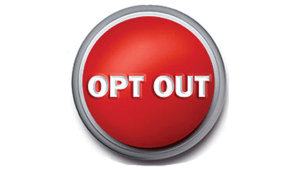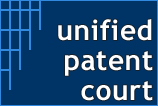No more than 15 to 60 seconds. That’s the time it will take to opt out a patent from the jurisdiction of the Unified Patent Court, once the so-called sunrise period of the Court has started on 1 September 2017. A piece of cake? Not at all. Before legal representatives or patent proprietors can file opt-outs on the UPC’s website, thorough checking needs to be done.
 While creating the structure and Rules of Procedure for the UPC, the Preparatory Committee repeatedly changed the plans for the opt-out system. Initially, a fee of 80 euros was envisaged for opting out, later this fee was suppressed. In the meantime, the committee came to realize it was impossible for the court to check who is the proprietor of a European patent – and who should therefore file the opt-out, as there is no obligation to register this. In the system that was finally adopted (article 5 RoP), there is no check whatsoever of the opt-out by the Court. The responsibility that it is done correctly, lies entirely with the patent proprietor.
While creating the structure and Rules of Procedure for the UPC, the Preparatory Committee repeatedly changed the plans for the opt-out system. Initially, a fee of 80 euros was envisaged for opting out, later this fee was suppressed. In the meantime, the committee came to realize it was impossible for the court to check who is the proprietor of a European patent – and who should therefore file the opt-out, as there is no obligation to register this. In the system that was finally adopted (article 5 RoP), there is no check whatsoever of the opt-out by the Court. The responsibility that it is done correctly, lies entirely with the patent proprietor.
The opt-out was discussed extensively during the second day of the Unitary Patent Package Conference in Amsterdam. Several representatives of companies and law firms pointed out that, after the period of uncertainty and lack of progress regarding the UP system, due to the Brexit vote of 23 June 2016, suddenly there is little time to decide on opting out patents or not, and to make sure this is done properly.
As Estelle Senior, professional support director of HGF, told Kluwer IP Law: ‘The important steps are contacting clients to get their opinion as to whether or not they want to opt out their patents. That will be the difficult part rather than the procedural part. And it is very important to get the proprietor right, which is the beneficial owner of the patent, not necessarily the person or the entity that is recorded on the patent registers. We have to get that chain of title correct, so we get the authorization from the correct party to file the opt out, which may not necessarily be the party that we originally filed the patent on behalf of.’
The renewed optimism that the UP and UPC will become a reality soon, was caused by the November announcement of the UK Government that it still intended to ratify the UPCA despite the Brexit vote. Bart Wezenbeek, patent attorney and senior associate of V.O. Patents & Trademarks thinks the decision that the UPC will open its doors on 1 December 2017 has taken many by surprise. ‘It also meant the sunrise period needed to be established. Initially the UPC Preparatory Committee said the sunrise period would at least be six months, but they have shortened that to three months. Probably also because they were surprised as well that the system could start soon.’
 According to Wezenbeek, the awareness about the upcoming UP system among his clients is low. ‘They know something is coming, but they don’t know the ins and outs of it and they don’t know about the benefits and value of the system for them. This is true for all clients, from universities and research groups to large multinationals. Although multinationals are a bit more aware because they have their own patent departments.’ Still, he thinks there is enough time to prepare: ‘Last year people were busy with preparations, but dropped everything after the future of the UP system had become uncertain due to the Brexit vote. Now everything has to come into gear again and law firms like mine will have to educate and advise clients on the upcoming system.’
According to Wezenbeek, the awareness about the upcoming UP system among his clients is low. ‘They know something is coming, but they don’t know the ins and outs of it and they don’t know about the benefits and value of the system for them. This is true for all clients, from universities and research groups to large multinationals. Although multinationals are a bit more aware because they have their own patent departments.’ Still, he thinks there is enough time to prepare: ‘Last year people were busy with preparations, but dropped everything after the future of the UP system had become uncertain due to the Brexit vote. Now everything has to come into gear again and law firms like mine will have to educate and advise clients on the upcoming system.’
HGF has done a lot to raise awareness, says Estelle Senior: ‘We sent out mailings, we gave presentations to some of our bigger clients. I think clients that have in house departments are a lot more aware.’ However, getting the message across while there are still some question marks over the time scales – ‘Conveying that it is important but was not yet urgent’, has been quite difficult, in her experience. Whereas now the time pressure is high: ‘The schedule is really tight, especially given there is a summer holiday in there. A lot of companies will be having to make these decisions over the summer break if opt-outs are to be filed in September.’
During a workshop session, Bart Wezenbeek signalled there might be a liability risk for representatives who perform an opt-out. ‘A mistake in spelling the company name may be enough to invalidate an opt-out.’ The main task for patent attorneys will be to inform their clients about the opt-out procedure. ‘Knowing who the patent owners are can be quite a difficult thing and errors are easily made. Clients should be instructed that it is their decision if they want to opt out, and that they must supply all the information to do the opt-out.’
Estelle Senior thinks in some cases it may be very complicated for companies to establish who is the patent proprietor: ‘For a lot of patents it will be the representative that will be filing the opt-out. That part may be correct, the information we’ve been given may be correct. But some of my colleagues do believe that there will be possibly even some satellite litigation around the fact that authorization wasn’t checked properly, and that there will be companies litigating with each other about who should be filing the opt-out.’
How many opt-outs will be registered once the sunrise period has started is very unclear. According to the Preparatory Committee, all experienced patent judges in Europe have applied to become a UPC judge, so the fear for low quality decisions will probably not be a reason for companies to stay away from the UPC.
For regular updates on the Unitary Patent and the Unified Patent Court, subscribe to this blog and the free Kluwer IP Law Newsletter.
________________________
To make sure you do not miss out on regular updates from the Kluwer Patent Blog, please subscribe here.



What is the basis for the statement that the “proprietor” is “the beneficial owner of the patent, not necessarily the person or entity that is recorded on the patent register”?
Good morning
This come from the Rule of Procedure of the UPC. Rule 8.5 says…
…”in relation to the proprietor of a European patent, the person entitled to be registered as
proprietor under the law of each Contracting Member State in which such European patent has
been validated shall be treated as the proprietor whether or not such person is in fact recorded in
the register of patents maintained in such Contracting Member State (hereinafter “national
patent register”);”